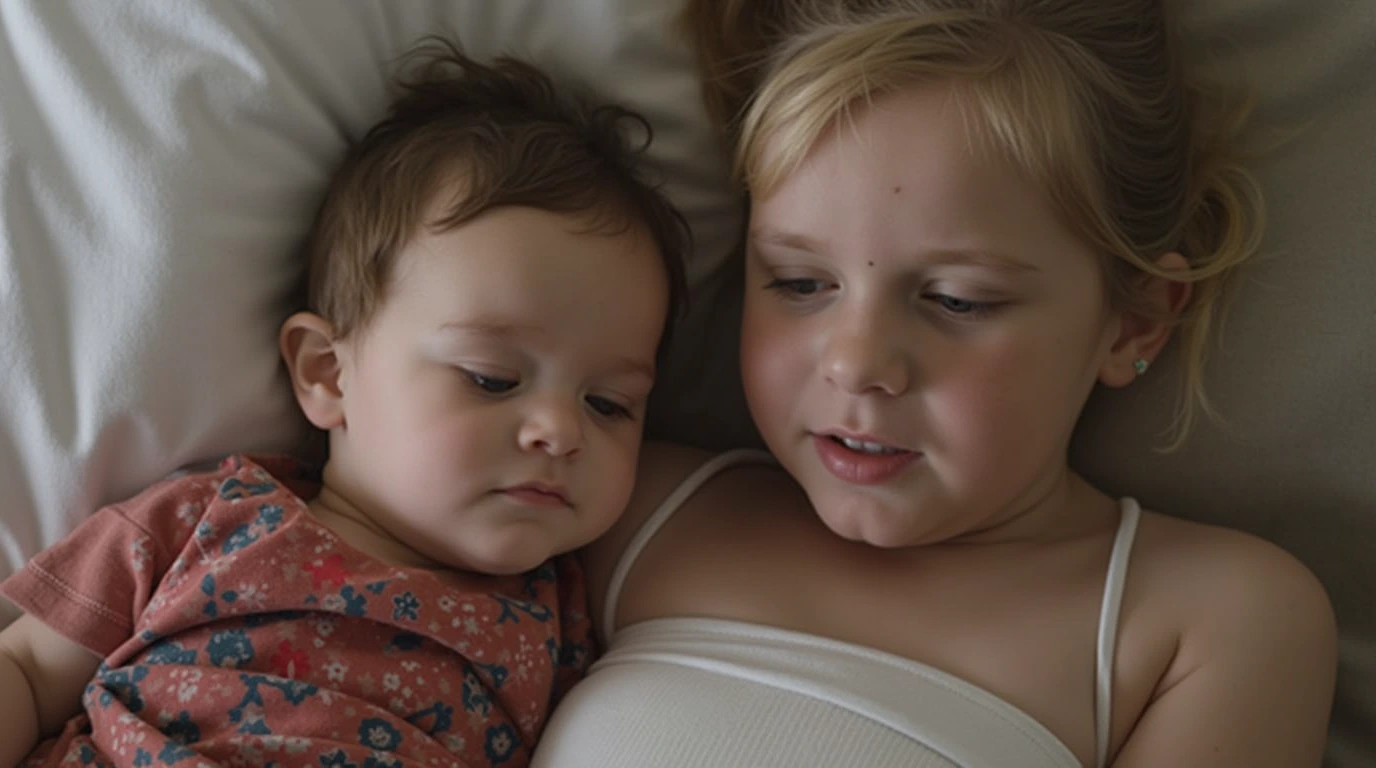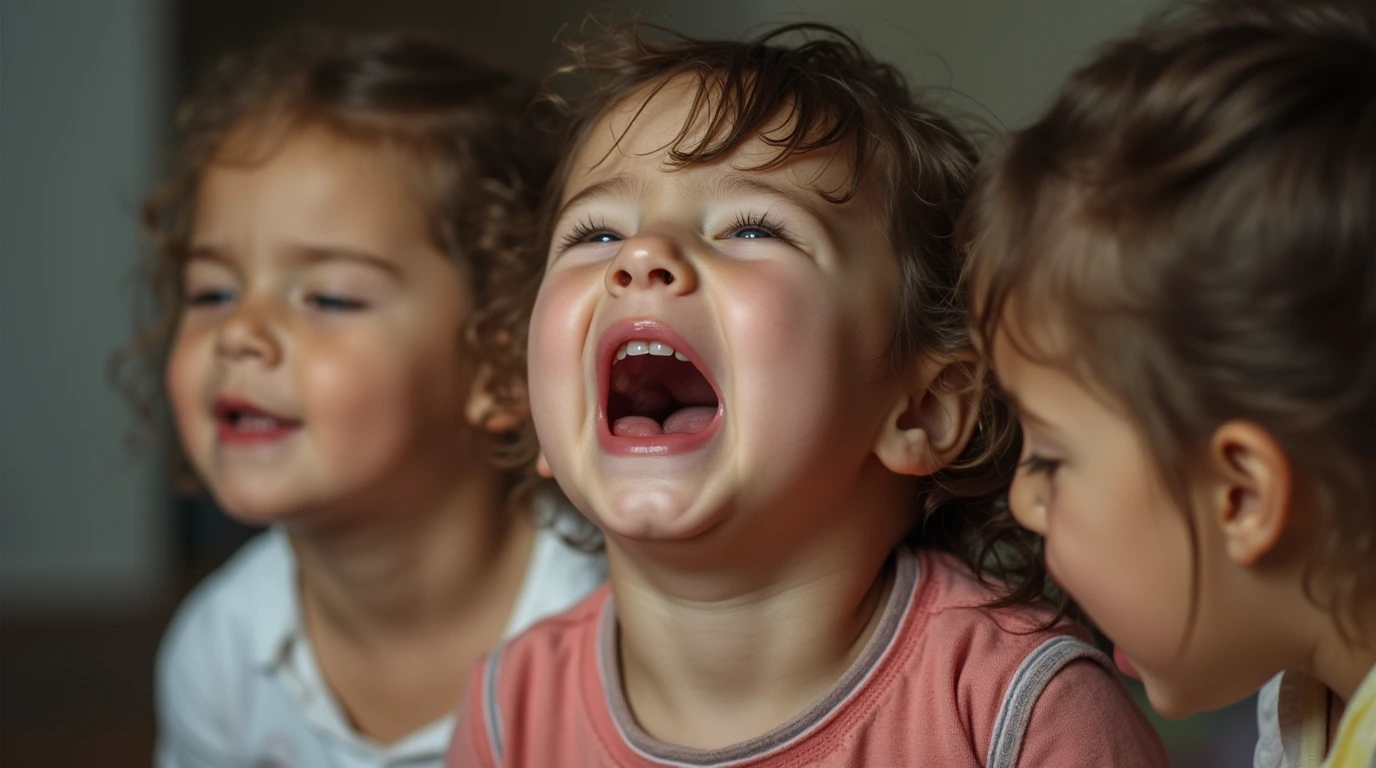Parenting is crucial in shaping a child’s emotional, social, and psychological well-being. While no parent is perfect, certain behaviors, such as abuse for example, can have lasting negative effects, sometimes more than expected. Recognizing these habits is the first step toward fostering a healthier and more supportive environment for children.
Signs of Bad Parenting
Some parenting behaviors, even when well-intentioned, can cause emotional distress, hinder confidence, and affect a child’s ability to trust and communicate. Understanding these signs helps in making necessary adjustments to ensure children grow up feeling valued, secure, and emotionally stable.
Reprimanding Children Even When They Tell the Truth
Punishing a child for honesty discourages transparency and trust. When kids learn that telling the truth results in consequences rather than understanding, they may start lying to avoid punishment. Studies suggest that children who fear excessive discipline develop deceptive behaviors as a defense mechanism, making honesty feel like a risk rather than a virtue.
🔹 Better Approach: Encourage open communication by appreciating honesty, even when addressing mistakes. Acknowledge their truthfulness while discussing ways to improve behavior.
Publicly Scolding, Shaming or Punishing Children
Shaming a child in front of others can lead to deep-seated embarrassment and insecurity. Public discipline—whether in front of peers, relatives, or strangers—can damage self-worth and foster resentment rather than genuine understanding of their actions. Research indicates that children subjected to public humiliation often develop social anxiety and lower self-esteem.
🔹 Better Approach: Address misbehavior privately to maintain respect and reinforce lessons without damaging confidence. Constructive conversations help children learn without feeling humiliated.
Offering Excessive Advice Without Encouragement
Overloading children with constant advice while failing to recognize their efforts can make them feel incapable or unworthy of praise. While guidance is essential, it should be balanced with encouragement to foster independence and self-trust. When kids receive too much unsolicited advice, they may feel overwhelmed or assume they are incapable of making decisions.
🔹 Better Approach: Offer guidance while acknowledging their strengths. Encouraging self-reliance and decision-making skills boosts confidence and personal growth.
Lack of Affection and Emotional Support
Children who do not receive consistent affection may struggle with emotional regulation, self-worth, and relationships later in life. Emotional neglect—whether intentional or unintentional—can lead to attachment issues, making it difficult for children to express themselves and trust others.

🔹 Better Approach: Show affection through verbal affirmations, physical gestures (such as hugs), and active listening. Emotional presence is just as crucial as physical care.
Constant Comparison to Others, Especially Siblings
Telling children they should be “more like” someone else—especially a sibling—can create feelings of inadequacy and resentment. Instead of motivating, constant comparison often leads to rivalry, low self-esteem, and pressure to meet unrealistic expectations.
🔹 Better Approach: Celebrate individuality by recognizing each child’s unique strengths. Encouraging personal growth rather than competition fosters self-worth and a healthier sibling dynamic.
Failing to Acknowledge or Be Proud of Achievements
Children thrive on recognition and validation. When their efforts go unnoticed, they may feel unappreciated or question their abilities. Over time, this can lead to a lack of motivation and a tendency to seek external validation in unhealthy ways.
🔹 Better Approach: Acknowledge and celebrate accomplishments, no matter how small. Even simple praise reinforces a child’s sense of competence and motivation to keep improving.
Consistently Criticizing the Child
Excessive criticism and an authoritarian parenting style can leave children feeling like they are never good enough. While constructive feedback helps in development, constant negativity can lead to anxiety, self-doubt, and a fear of failure. Many children who experience chronic criticism grow into adults with perfectionist tendencies or deep-seated insecurity.

🔹 Better Approach: Focus on effort rather than mistakes. Balance constructive feedback with positive reinforcement to build resilience and self-assurance.
Disregarding the Child’s Feelings and Opinions
Ignoring or dismissing a child’s emotions teaches them that their feelings do not matter. This can suppress emotional intelligence and make it difficult for them to communicate their needs and build relationships with other members of society. Children who feel unheard may either withdraw emotionally or act out to gain attention.
🔹 Better Approach: Validate feelings, even if they seem minor. Encouraging emotional expression helps children develop confidence in communicating their thoughts and needs.
Effects of Bad Parenting Choices on Children
The way children are raised shapes their emotional, psychological, and social development. When parenting lacks support, consistency, or positive reinforcement, children often struggle with long-term issues that extend well into adulthood. Poor parenting practices not only affect behavior but also influence mental health, academic performance, and future relationships.
Behavioral Problems
A lack of structure, inconsistent discipline, or excessive punishment can contribute to behavioral issues. Children raised in unstable or emotionally neglectful environments are more likely to exhibit:
🔹 Disobedience – Difficulty following rules or respecting authority figures.
🔹 Aggression – Increased tendencies toward anger, violence, or defiance.
🔹 Antisocial behaviors – Struggles with empathy, leading to manipulation, lying, or a disregard for others’ feelings.

A study published in the Journal of Child Psychology and Psychiatry suggests that children exposed to inconsistent parenting are at a higher risk of developing conduct disorders. Structure and positive reinforcement play key roles in fostering emotional stability and self-discipline.
Psychological Issues
hildren who experience harsh criticism, emotional neglect, or excessive control often develop deep-seated psychological struggles. Anxiety may arise from constant criticism and an unpredictable home environment, leading to chronic worry and difficulty coping with stress. Depression often stems from a lack of affection and emotional neglect, resulting in low self-worth and withdrawal from activities. PTSD can develop when a child is exposed to trauma or excessive punishment, causing nightmares and heightened emotional reactions.
Addressing these issues early with emotional support and stability can help mitigate long-term effects.
Social and Emotional Challenges
The ability to form healthy relationships begins in childhood. Poor parenting often leads to:
- Trust issues – Children who feel unheard or dismissed may struggle to trust others.
- Social withdrawal – Feeling unloved or criticized can cause reluctance to engage with peers.
- Lack of empathy – A child who isn’t shown emotional support may struggle to recognize or respond to others’ feelings.
According to research from the American Psychological Association, children raised in emotionally neglectful households are at higher risk of developing attachment disorders, making it harder to maintain meaningful relationships as they grow.
Bad Academic Performance
Parental involvement significantly impacts a child’s success in school. Poor parenting habits, such as neglecting educational encouragement or creating a stressful home environment, can result in:
📌 Low motivation – A lack of praise or support can make children disinterested in learning.
📌 Poor focus – Emotional instability often leads to concentration difficulties.
📌 Higher dropout rates – Children without academic encouragement are more likely to struggle and give up on education.
A report by Harvard University’s Center on the Developing Child highlights that children who receive positive reinforcement and parental engagement perform better academically and develop stronger problem-solving skills.
Long-Term Consequences
The impact of bad parenting doesn’t end in childhood. Unhealthy experiences can lead to:
✔️ Struggles with self-worth – Adults who were consistently criticized as children may develop self-doubt.
✔️ Difficulty forming relationships – Unmet emotional needs in childhood often result in insecure attachment styles.
✔️ Mental health disorders – Unresolved childhood trauma can contribute to conditions like depression and anxiety in adulthood.
Breaking the cycle of poor parenting requires awareness and intentional change. Parents who recognize the impact of their behaviors can take steps to foster healthier relationships and create a more nurturing environment for their children.
Common Bad Parenting Habits That Go Unnoticed
Many harmful parenting habits seem insignificant in daily life, but their effects can be profound. Small, repeated actions shape a child’s worldview, self-esteem, and emotional resilience. While some behaviors may appear to be expressions of care or discipline, they can unintentionally hinder a child’s growth.
Overprotectiveness and Controlling Behavior
Shielding children from challenges may seem like a way to keep them safe, but excessive protection stunts their ability to develop problem-solving skills and independence. Overprotective parents often:
- Make decisions for their child without allowing personal input.
- Intervene in conflicts instead of letting the child learn resolution skills.
- Limit exposure to new experiences out of fear of failure or discomfort.
A study from Psychological Science suggests that children raised by overcontrolling parents tend to struggle with autonomy and decision-making as adults. Without opportunities to face setbacks, they may lack resilience and confidence in handling life’s uncertainties.
🔹 Better Approach: Encourage age-appropriate risks and problem-solving to help children develop independence and adaptability.
Lack of Discipline or Setting Inconsistent Rules
Children thrive on structure, and inconsistent discipline leads to confusion and frustration. Parents who frequently change rules or fail to enforce boundaries create uncertainty, which can lead to:
- Increased defiance – Kids push limits when consequences are unclear.
- Anxiety and insecurity – Inconsistent rules create unpredictability, making it harder for children to feel safe.
- Entitlement or lack of responsibility – Without clear guidelines, children may struggle with accountability.
According to the American Academy of Pediatrics, effective discipline should be consistent, clear, and developmentally appropriate to help children understand expectations and consequences.
🔹 Better Approach: Set firm but fair rules and follow through with consistent consequences.
Overly Strict Parenting and Harsh Punishments
While discipline is necessary, excessive control and punishment can lead to fear-based behavior rather than genuine understanding.

Children raised under extreme strictness often:
- Hide mistakes out of fear of punishment.
- Develop secrecy and defiance rather than respect.
- Struggle with decision-making due to a lack of personal autonomy.
A University of Pittsburgh study found that harsh discipline increases the likelihood of depression and aggression in adolescence. Kids who grow up under extreme control may struggle with confidence and emotional regulation as adults.
🔹 Better Approach: Discipline should teach, not intimidate. Use constructive consequences rather than punitive measures to encourage learning and self-discipline.
Ignoring a Child’s Need for Emotional Validation
Children need their emotions to be acknowledged to develop healthy emotional intelligence. When parents dismiss or downplay their child’s feelings, they risk raising adults who:
- Struggle with emotional regulation and communication.
- Feel invalidated or unimportant, leading to self-doubt.
- Develop detachment issues, making it difficult to form close relationships.
A Harvard Child Development Study found that children who receive emotional validation are better at managing stress and forming healthy relationships.
🔹 Better Approach: Acknowledge feelings before offering solutions. Phrases like “I see that you’re upset” help children feel heard while teaching them how to process emotions.
How Bad Parenting Style Affects Future Generations
Negative parenting practices don’t just impact one child—they can create a cycle that persists across generations. Children raised in unhealthy environments often carry their experiences into adulthood, shaping their own parenting styles and relationships.
How Childhood Trauma Influences Adult Behavior
Early negative experiences leave lasting psychological imprints. Adults who experienced trauma in childhood may:
- Struggle with trust and intimacy in relationships.
- Develop people-pleasing or avoidant behaviors due to past criticism.
- React emotionally rather than rationally in high-stress situations.
A report from the National Institute of Mental Health found that childhood trauma increases the risk of self-doubt, difficulty forming relationships, and heightened emotional reactivity.
🔹 Better Approach: Healing from childhood trauma involves self-awareness, therapy, and learning healthier ways to navigate emotions and relationships.
The Risk of Repeating Toxic Parenting Patterns
Many parents unintentionally repeat harmful behaviors they experienced as children, simply because these patterns feel familiar. Emotional neglect can lead to parents struggling to show affection to their own children, as they were never taught how to express love and support. Harsh discipline often carries over when a parent who was frequently punished adopts the same strictness, believing it to be the only effective method of control. Dismissive behavior may also be repeated, as parents who never received emotional validation might unintentionally ignore or downplay their child’s feelings.
🔹 Better Approach: Recognizing unhealthy patterns is the first step. Seeking education on positive parenting and working through personal childhood experiences can help shift behaviors.
The Connection Between Bad Parenting and Mental Health Disorders
Long-term exposure to neglect, criticism, or emotional instability increases the risk of developing mental health struggles, including:
📌 Anxiety – Growing up in unpredictable environments can lead to chronic worry.
📌 Depression – A lack of emotional support often results in low self-worth.
📌 Personality disorders – Inconsistent parenting may contribute to attachment issues and difficulty forming stable relationships.
According to research published in the Journal of Abnormal Child Psychology, children raised in toxic environments are more prone to mental health issues, which can persist into adulthood if left unaddressed.

🔹 Better Approach: Fostering a supportive, stable, and emotionally validating environment can significantly reduce mental health risks in children and future generations.
Breaking the Cycle of Bad Parenting
Parenting habits are often learned from previous generations, but harmful behaviors don’t have to be repeated. By recognizing destructive patterns and making intentional changes, parents can create a more supportive and nurturing environment for their children. Breaking the cycle requires self-awareness, education (Here are several highly recommended parenting books that can assist you with this issue.), and a commitment to fostering positive relationships.

Recognizing and Addressing Negative Behaviors
The first step toward change is identifying parenting habits that may be harming a child’s emotional and psychological well-being. Some common signs of negative parenting include:
✅ Frequent criticism without encouragement
✅ Ignoring or dismissing a child’s feelings
✅ Using harsh punishment rather than constructive discipline
✅ Controlling behavior that limits independence
A study from the American Psychological Association suggests that self-reflection plays a crucial role in improving parenting practices. Acknowledging mistakes without guilt or defensiveness allows for meaningful growth and better relationships with children.
🔹 Better Approach: Keep a journal or seek feedback from trusted friends, partners, or professionals to identify areas for improvement.
Practicing Positive Communication and Active Listening
Children need to feel heard and understood. When parents prioritize open communication, they build trust and emotional security. Active listening involves:
- Making eye contact and giving full attention when a child speaks.
- Acknowledging feelings before offering solutions.
- Asking open-ended questions to encourage expression.
🔹 Better Approach: Use affirming statements such as, “I understand why you feel that way” before responding with guidance or discipline.
Setting Clear Boundaries and Expectations
Consistency in discipline and expectations helps children feel secure and teaches responsibility. When rules are clear and consistently enforced, children understand what is expected of them, making it easier for them to develop self-discipline. In contrast, when rules frequently change or are unpredictable, children may become confused or frustrated, leading to behavioral issues.
Fair and logical consequences help reinforce compassionate boundaries in a way that encourages learning rather than fear. For example, a child who forgets to complete homework might lose screen time instead of facing an excessive or emotionally driven punishment. When parents enforce rules with patience and consistency, children learn accountability without experiencing unnecessary stress or self-doubt. However, when boundaries are either ignored or overly strict, children may struggle with feelings of insecurity or resentment, making discipline less effective.
🔹 Better Approach: Establish rules together as a family and ensure that consequences align with the behavior rather than causing unnecessary distress.
Prioritizing Quality Time and Positive Reinforcement
Spending meaningful time together strengthens family bonds and boosts a child’s self-worth. Positive reinforcement encourages desired behaviors more effectively than punishment.
📌 Examples of Positive Reinforcement:
✔️ Praising effort rather than just results (“I love how hard you worked on this project!”)
✔️ Rewarding good behavior with privileges or small incentives
✔️ Spending one-on-one time doing activities the child enjoys
A study published on ResearchGate highlights that positive reinforcement, including praise, plays a crucial role in shaping children’s behavior, indicating that reinforcement methods significantly influence confidence levels and overall emotional well-being.
🔹 Better Approach: Create daily or weekly routines for shared activities, such as reading together, cooking, or playing games, to reinforce connection and positive behavior.
Seeking Professional Help or Counseling if Needed
Some parenting struggles stem from deep-rooted personal experiences or unresolved trauma. Seeking help from a therapist or parenting coach can provide valuable strategies for improvement. Therapy can help parents:
- Understand how their upbringing influences their parenting style.
- Develop healthier coping mechanisms for stress and frustration.
- Learn effective discipline techniques tailored to their child’s personality.
🔹 Better Approach: Consider family counseling or parenting workshops to gain new perspectives and practical tools for fostering a healthier family dynamic.
Breaking harmful parenting cycles requires effort, but with awareness and intentional change, parents can create a positive and nurturing environment that benefits both their children and future generations.


